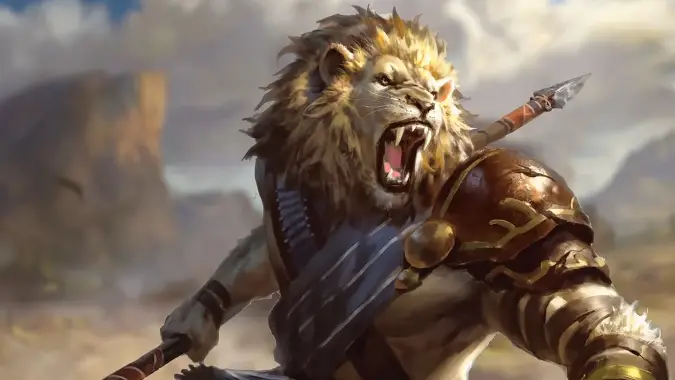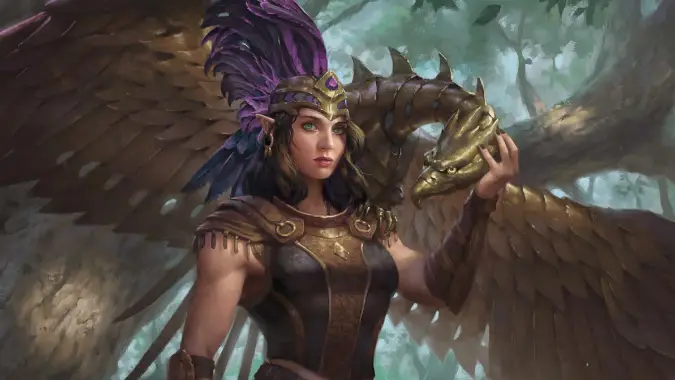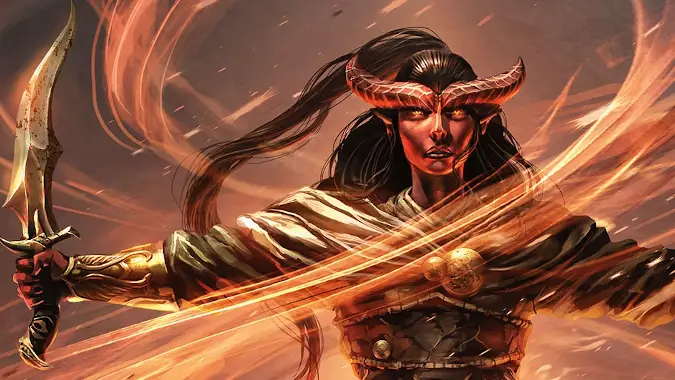The many styles of roleplaying in tabletop RPGs

I run games a lot more than I get to play them, so when I do get to play, I tend to RP as hard as I can. I mean, go ahead and listen to our Wild West D&D adventure and you can listen to me roleplaying a zen robot. I’m not much of an actor — I can’t do voices, I’m not super great at emoting, but I can commit to a bit and if that bit is I’m a robot who seeks enlightenment well, so be it. When we do our Shadowrun games, I really enjoy getting into the mindset of my Physical Adept, out for revenge and very serious about keeping this group of misfits she barely knows alive for reasons she herself might not understand. I am what I call a method roleplayer — I care a great deal about my character’s perspective, and I make decisions as best I can that fit what he, she or they would do when presented with a certain situation.

Methodical, method, or chaotic — everything can work
However, while that’s how I tend to roleplay, it’s not the only way I roleplay, and it’s certainly not the only way anyone else should. There are a lot of different styles of roleplaying — from complete tactical players who make their decisions entirely with victory in mind to chaos engines who, possibly deliberately or possibly just because that’s how they felt in the moment make decisions that spiral the game off in a strange new direction. There are dozens of styles, some of which you have to learn how to deal with as a DM (or learn when to cut your losses and get rid of them) so we’ll talk about how to go about identifying what you’re dealing with.
Almost any style of play can be perfectly acceptable — or completely disruptive — depending on what the group is most interested in achieving. If you have a table full of tactical players and power gamers who want to kill everything and loot all the bodies and you have that one player who gets super into character and that player’s unwillingness to break character is making the game feel bad for everyone else, it’s not automatically the fault of the players who signed up for monster slaying and loot retrieval. It’s not inherently better to be super invested in your character’s backstory, if that’s not what the group wants to do. I say this both as a DM who prefers games with a certain amount of story and background narrative and as a player who tends to write super-long backstories and play my character, making decisions based not on what would win a fight fastest but instead on what I think my character would do.

Does your RP style fit the group?
There’s no platonic perfect game. There’s no game where each individual player is playing in a vacuum. You might be a superlative actor, playing your character down to the smallest detail, but if that’s slowing down the parts of the game that the rest of the party enjoy, you might be the problem, not that one Monty Haul player who is all about grabbing as much loot as possible. At least that player is doing things that fit the group’s overall direction.
This doesn’t mean you should feel bad about how you like to play. It does mean that you should always be looking to whether or not you’re compatible with the group you’re playing with.
Often, we’re convinced that if a group is full of people we like, we should automatically be able to play with them. It would be nice if that were true, and I encourage you to consider how you can enjoy a tabletop RPG — can you let go of a little of your story over everything mindset and enjoy a dungeon crawl adventure? Is your group willing to indulge your RP sweet tooth in return? If the players are all willing to try and make sure everyone gets to do the part of the game they enjoy, then that’s group compatibility, and it’s amazing when you find that. Some of my best gaming experiences have been playing in groups full of tactical and power gamers, and I even got some of them to roleplay and enjoy it. But that was because we all were willing to make the effort — if you and your group don’t have that there’s absolutely no shame in not forcing it.

But what if you’re the one running the game?
Now, if you’re the DM/GM of the game and you know you have players with different priorities, there are ways you can deal with it. I like to personally try and encourage my groups to participate in various aspects of the game, especially players I know are really invested in specific kinds of gameplay. If, for example, you have a group of six players, and two of those players are really seriously into roleplaying, one is a significant tactical player, another is there for loot and monster smashing, one is passive but enjoys when in-game lore reveals happen, and a player who is just starting to figure out how they want to play the game, this is an opportunity for you to try and balance out these aspects of the game. It can be extremely hard to make the game always fun for every player — I rarely manage it — but if you’re making the effort, often players will come to enjoy the parts of the game that aren’t their personal favorites.
Ultimately, there are too many varieties of player for me to spell out exactly what’s right for your merry band of misfit, but it isn’t necessary — what is necessary is for you, as players and game masters, to pay attention to your group and try and make sure you give your fellow players what they need to be happy playing with you.
Please consider supporting our Patreon!
Join the Discussion
Blizzard Watch is a safe space for all readers. By leaving comments on this site you agree to follow our commenting and community guidelines.
 @MatthewWRossi
@MatthewWRossi



